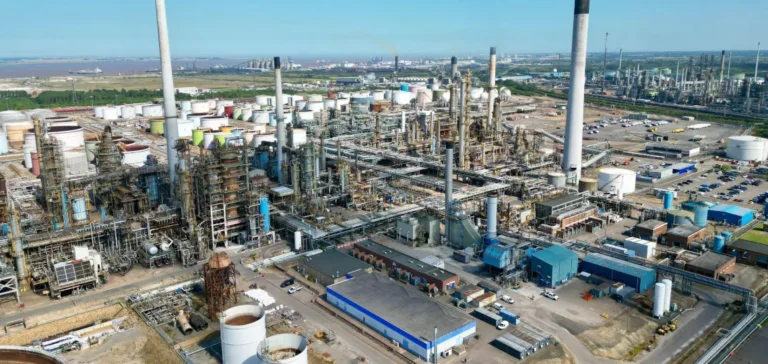Delivery operations have resumed at the Lindsey refinery, owned by the Prax group, following the recent conclusion of an agreement ensuring the temporary supply of crude oil needed for its operations. This restart comes amid a delicate context marked by the insolvency situation of the refinery, which is one of the main sources of fuel supply in the UK. The judicial administration, overseen by the UK’s Official Receiver, has maintained operations at the site while actively seeking long-term solutions, including a potential sale of the asset. The continuity of deliveries is a critical issue for the UK energy market, with future options still uncertain.
Insolvency context and market impact
The Lindsey refinery plays a key strategic role in the UK energy sector, processing around 113,000 barrels of crude oil per day. Its insolvency has raised immediate concerns about national energy security, leading to intense discussions between the government and industrial stakeholders. Prax, the refinery’s owner, has not publicly disclosed the specific reasons behind this financial crisis, but the temporary continuation of production is a key measure to maintain balance in the domestic market. Distributors and oil logistics companies are closely monitoring the situation’s developments, aware of the importance of maintaining regular fuel flows from this key site.
Economic implications and government measures
Given the strategic importance of Lindsey, the UK government, through the Department for Energy Security and Net Zero (DESNZ), acted swiftly to stabilize operations temporarily. The primary objective of this intervention was to prevent a major disruption in the fuel market, which could have significant short-term economic repercussions. The Official Receiver is currently exploring all possible options, including a potential takeover by a new industrial operator, to ensure the long-term viability of the site and preserve the associated jobs. This approach is being closely watched by potential investors, as it presents a strategic acquisition opportunity in a rapidly changing UK energy sector.
Market outlook and positioning of industry players
In the medium term, managing the crisis at the Lindsey refinery will be pivotal for the fuel supply strategies of national and regional distributors in the UK. The temporary operational continuity reduces the immediate risk of shortages, but the financial and operational viability remains in question. The future of the site will largely depend on the conclusions of the judicial administration and any potential market offers. The oil sector professional community is closely following each step of the process, fully aware that the final decision could reshape the UK energy landscape.






















